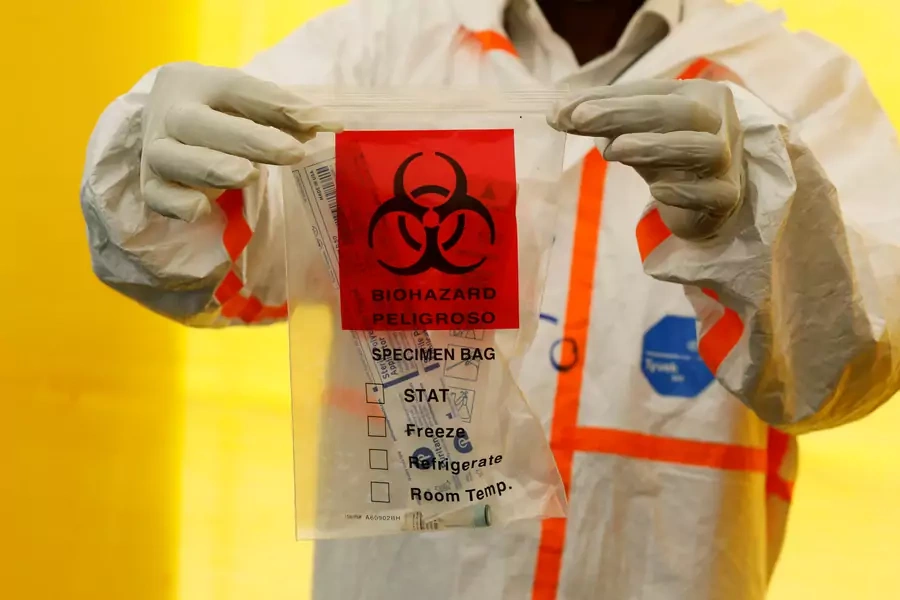Beating COVID-19 in Africa Begins With National Labs

Farouk Umaru, M.Sc., MBA, Ph.D., is Director of Global Public Health Laboratory Programs at U.S. Pharmacopeia.
When the African continent's first reported cases of COVID-19 surfaced in February, the African Union and Africa Centres for Disease Control and Prevention (CDC) quickly devised their strategy to contain the pandemic: rapidly diagnose and isolate patients, and temporarily quarantine their contacts. Since then, as nations across Africa implement a patchwork of different approaches – from imposing strict lockdowns to declaring the pandemic's end and resuming business as usual – it has become clear that most countries lack the data needed to effectively respond. Although testing efforts have detected over 1.3 million cases of COVID-19 across Africa, experts agree that limited testing capacity has masked the full extent of disease spread and hampered control efforts. To scale up testing, health sectors must not only find ways to procure more test kits, but also dramatically increase the continent's laboratory capacity to process tests, as delays allow the virus to spread.
More on:
Progress is already being made. The Africa Joint Continental Strategy for COVID-19 Outbreak identified equipping, training, and strengthening public health laboratories for quality-assured diagnostic testing as one of its key pillars. Within the first two months of COVID-19 touching down in Africa, sub-Saharan Africa went from having two laboratories equipped for testing – in South Africa and Senegal – to creating some testing capacity in all countries by adapting labs that previously focused on diagnosing HIV and tuberculosis (TB).
Work to scale up clinical laboratory capacity across Africa is needed not just for COVID-19 but also for other endemic and emerging diseases, and the pandemic offers the impetus to accelerate efforts. A group of partners convened by Africa CDC – including the African Society for Laboratory Medicine, WHO-AFRO, UNITAID, United States Pharmacopeia (USP), and others – is working to increase access to quality diagnostics through the Africa Collaborative Initiative to Advance Diagnostics (AFCAD).
Both quantity and quality of diagnostics are major priorities. If data produced by diagnostic tools are not reliable, treatment decisions and prevention measures won't be, either. Poor-quality testing that produces inaccurate results would undermine public confidence in the health system at a time when trust in healthcare and medical products will be essential to ending the pandemic.
USP – an independent scientific organization that sets quality standards for medical products that are used in over 150 countries and integrated into the laws of more than 40 governments – has collaborated with 34 countries to strengthen more than 90 laboratories, enabling them to assure quality of medical products and vaccines and increase capacity for clinical diagnosis. USP is supporting select national laboratories in Ghana, Ethiopia, and Nigeria to strengthen clinical laboratory capacity for HIV, TB, malaria, and COVID-19, including through strategic planning, emergency preparedness, and building capabilities in laboratory testing and quality management systems. USP is also supporting these labs to ensure that poor-quality test kits – such as falsified tests peddled by criminal networks looking to profit from the crisis – don't reach patients and compromise the pandemic response.
Scaling up these efforts to meet the substantial challenges posed by COVID-19 will require urgent and sustained investments from governments; donors that have already made substantial contributions in this area such as USAID, the Global Fund, the World Bank, and the Bill & Melinda Gates Foundation; and new funders. It will be well worth the effort. To achieve the African Union's Agenda 2063 toward a prosperous, healthy, self-reliant continent, being able to successfully address disease outbreaks through state-of-the-art medical science is essential. Continuing this rapid scale-up of laboratory capacity across the continent, while ensuring the quality of test results, will allow African health workers and decisionmakers to understand the disease dynamics essential in informing control and prevention measures, not only for COVID-19, but also for other ongoing epidemics and emerging diseases.
More on:
 Online Store
Online Store